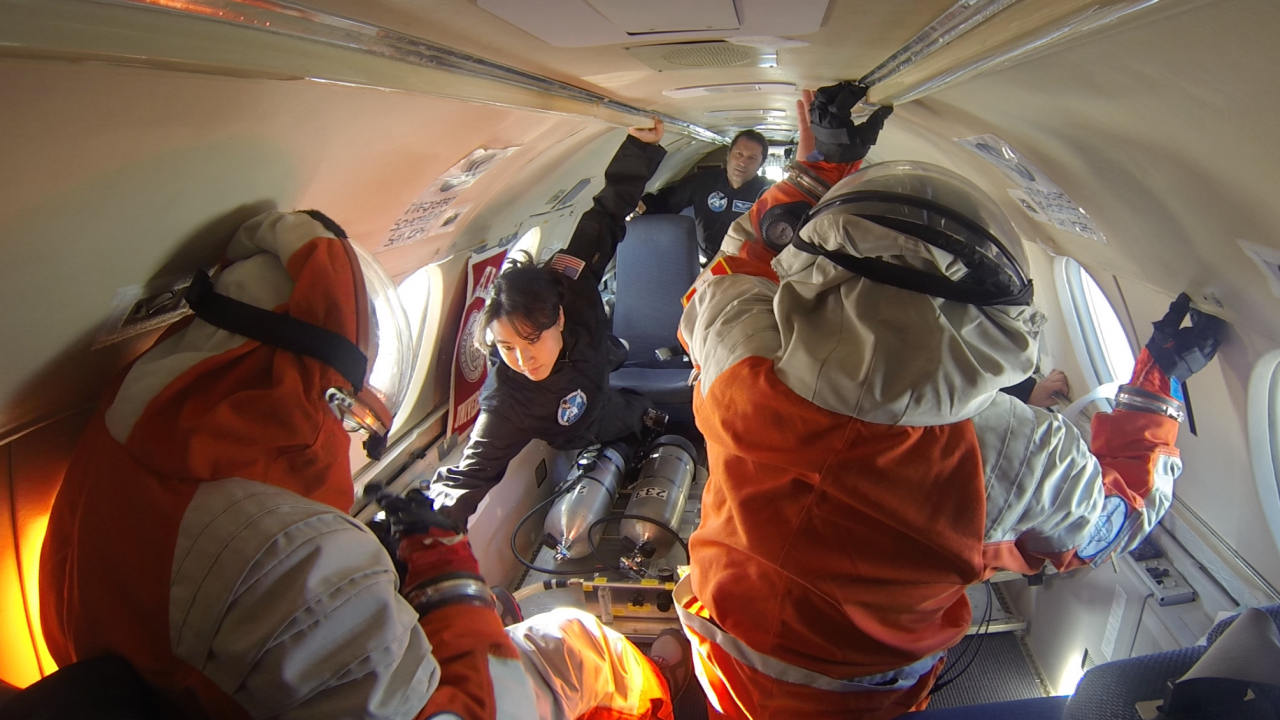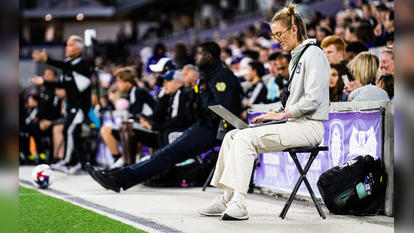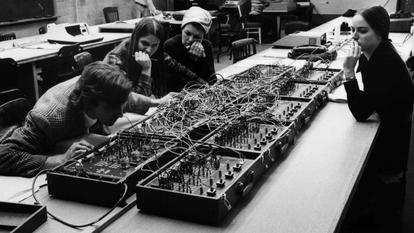Three Wellesley Alumnae Named to Forbes 30 Under 30 Lists

Forbes magazine has named Charlotte Kiang ’13 to its U.S. 30 Under 30 enterprise technology list, and Sara Minkara ’11 to its 30 Under 30 social entrepreneurs list. Zsofia Schweger ’12 was also featured in Forbes’ 30 Under 30 Europe lists, in the arts. The three are the most recent Wellesley alumnae to be honored by the publication for outstanding achievement in their fields.
Forbes chose Kiang for her work on NASA’s Commercial Crew Program, where she oversees the development of environmental control systems and space suits for the “Crew Dragon” spacecraft that is being designed to carry people and cargo to the International Space Station and eventually to Mars. Kiang is also a member of the Space Generation Advisory Council, a global nonprofit that represents university students and young professionals at the United Nations. Previously, Kiang worked as an engineer on the CST-100 spacecraft, which is also contracted by NASA to carry crew and supplies to the International Space Station.
Kiang majored in political science until the end of her sophomore year, when she interned at Mic, a news website for millennials, where she wrote an article about the final launch of NASA’S Space Shuttle. “Writing that article made me realize that instead of simply reporting on technology, I wanted to help create it,” Kiang said in an interview. “When I got back to Wellesley in the fall, I decided to switch my major to something that would allow me to pursue work and graduate studies in engineering. Mathematics became a logical choice for that since I had already taken a few classes in the department, and because I knew it would provide a strong foundation for any engineering discipline.”
The summer before her senior year, she interned at NASA’s Johnson Space Center, helping to design jet packs for astronauts working on the International Space Station. When she returned to campus, the Dana Hall School, a private school for girls in Wellesley, hired her as a part-time teacher for its AP computer science class during the 2012–13 school year. “I have always loved teaching, since educational outreach is a huge part of being an engineer or scientist, but I also always knew that I wanted to do something more hands-on in industry for my long-term career,” she said.
After graduation, she looked for jobs that were similar to her NASA internship. She also earned a master’s degree in engineering at Cornell University, then worked as a research assistant, leading the Cornell Microgravity Research Team (CU-MicroG) through the design, fabrication, and testing of a human-operated asteroid float sample grabber under NASA’s Micro-G NExT program. All of those experiences, she said, led her to her current position.
“The single most important lesson I learned at Wellesley was to be open to any interesting opportunities that come your way, even if you can’t see their direct relevance to your major or future career,” she said. “I never would have guessed that my journalistic experience would be helpful to a technical career, but writing skills have turned out to be incredibly important to every job I’ve ever had, technical or otherwise.”
Kiang said she has learned to ignore the naysayers. “When I realized I was interested in engineering halfway through undergrad, there were people who told me I’d never make it; that it was too late. As we can see now, those statements were completely false. If you have a goal and are willing to work hard to achieve it, anything is possible.”
Forbes selected Minkara for her work with Empowerment Through Integration, a nonprofit she founded that helps blind children ages seven to 18 in Lebanon develop confidence and learn life skills, such as walking with a cane or using a computer. The organization also runs a summer camp for both blind and sighted children.
Minkara, who was born in the suburbs of Washington, D.C., and raised in Boston by Lebanese parents, lost her sight at the age of seven. But as she told the Daily Star newspaper in Beirut, “because I had a support system from my parents, my teachers and community, I was able to pursue a very integrated life and pursue my dreams. I never thought because I was blind I couldn’t do anything.”
Minkara and her parents traveled to Tripoli every summer to maintain their family connections. Those trips taught her that people with disabilities have little support in Lebanon and are often viewed as incapable of completing an education or getting married.
“There are things that make you feel like you have no potential, that you can do nothing and that you have no value,” Minkara told the Daily Star. “And I used to think that if I heard this every day of my life then I wouldn’t have been able to pursue what I did.”
Minkara majored in mathematics and economics at Wellesley and earned a master of public policy degree at Harvard. As a sophomore at Wellesley, she started a month-long summer camp for 39 children, both sighted and visually impaired, in Tripoli. The project won the Clinton Global Initiative Outstanding Commitment Award in the spring of 2009. Since then, ETI has grown, and Minkara’s work has been increasingly recognized. In 2011, she received the MIT IDEAS Global Challenge Award and Margaret Freeman Bowers Award. In 2015, a video about ETI’s work won first place at the Girl’s Impact World Film Festival.
As she told the Daily Star, her “ultimate and big mission is to change the narrative surrounding disability…and getting society at large to believe that there is value in including everyone, the person with the disability and the person without a disability.”
Forbes was not the first to recognize Schweger’s talents in naming her to its European arts list: Schweger was a Pamela Daniels Fellowship winner during her senior year at Wellesley, and an Albright Institute Fellow. She was also a member of the Wellesley Blue fencing team. After earning her B.A. from Wellesley with double majors in studio art and comparative literature, she was selected for the Harriet A. Shaw Fellowship for study in music, art, or allied subjects, and the Alice C. Cole ’42 Alumnae Award, which provides project-based support for the development, production, and exhibition of new work in painting and sculpture.
Schweger, who is from Hungary, is now based in London, where she earned her M.A. from the Slade School of Fine Art. She was selected for Bloomberg New Contemporaries 2016 and has received such honors as the Jealous Prize, the Griffin Art Prize, and the ‘One To Watch’ Award.
Schweger’s first solo exhibition was held in 2016 at London’s Griffin Gallery, and her work is currently on view at Lundgren Gallery in Palma, Spain until April. “My work is driven by my experience as a Hungarian living abroad first in the USA and now in the UK,” she said in a gallery profile. “I research the notions of home and belonging, local identity, and the emigrant experience. My personal narrative has engendered painterly thinking of absence and presence, stillness and duration, space and flatness, cosiness and dread… I want always to make paintings that are affective and alive.”



